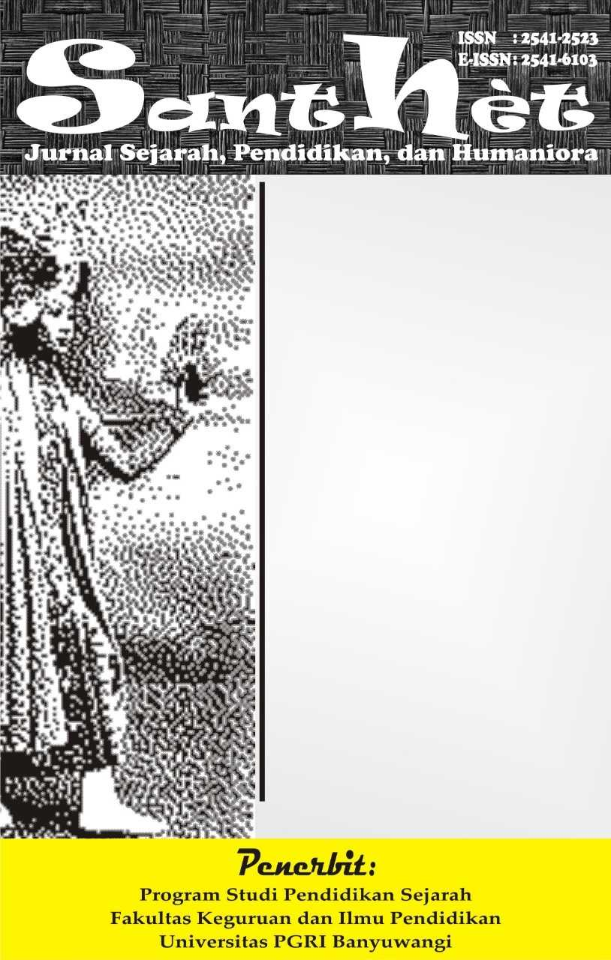The Use of English as a Lingua Franca in Business Communication: A Case Study of Applied Foreign Language Students
DOI:
https://doi.org/10.36526/santhet.v9i4.5679Keywords:
English as a Lingua Franca, Business Communication, Vocational Students, Communication StrategiesAbstract
English as lingua franca, the main focus is on achieving mutual understanding rather than using perfect grammar or sounding like a native speaker. However, students often face challenges in speaking fluently due to different accents, proficiency levels, and cultural references, which can lead to misunderstandings and communication disruption. Such strategies help speakers maintain politeness, ensure clarity, and improve efficiency in their interactions. In professional contexts, these three strategies are important to support smooth and successful communication between individuals from different linguistic and cultural backgrounds. This study aimed to fill the gap by focusing on the real experiences during internship of Applied Foreign Language students involved in business communication using English as a lingua franca. Using a qualitative descriptive approach, the research found that students employed various communication strategies to manage language gaps. The use of politeness, clarity, and efficiency strategies helped to improving their confidence, enhancing their professional self-respect, and encouraging more active participation in workplace interactions. In conclusion, these communication strategies are effective tools that help students handle language challenges, maintain clear and respectful communication, and engage more fully in professional settings where English functions as a Lingua Franca.
References
Ardiansyah, A., & Sari, N. P. (2023). Implementasi English as a lingua franca (ELF) di pendidikan tinggi Indonesia: Persepsi dan tantangan mahasiswa. https://journal.unusida.ac.id/index.php/plppbi/article/view/1621
Barančicová, J., & Zerzová, J. (2015). English as a lingua franca used at international meetings. JoLaCe Journal of Language and Cultural Education. 3(3), 30–51. https://doi.org/10.1515/jolace-2015-0018
Braun, V., & Clarke, V. (2006). Using thematic analysis in psychology. Qualitative Research in Psychology (3rd ed.). https://doi.org/10.1191/1478088706qp063oa
Brown, P., & Levinson, S. C. (1987). Politeness: Some universals in language usage. Cambridge University Press. https://doi.org/10.1017/CBO9780511813085
Cahyadi, I. A., & Fitriyah, U. (2022). Pre-Service Teachers’ Perception and Strategies in Teaching English as a Lingua Franca in Indonesia. Journal of Languages and Language Teaching, 10(1), 1–10. https://e-journal.undikma.ac.id/index.php/jollt/article/view/11276
Caprario, M. (2024). Communication strategies in English as a lingua franca: A research synthesis. https://papers.ssrn.com/sol3/papers.cfm?abstract_id=4559962
Cogo, A., & Dewey, M. (2012). Analysing English as a lingua franca: A corpus-driven investigation. https://www.researchgate.net/publication/272012985_Analysing_English_as_a_lingua_franca_A_Corpus_Driven_Investigation
Creswell, J. W. (2007). Qualitative inquiry and research design: Choosing among five traditions. In Sage Publications (Vol. 2).
Crystal, D. (2018). The Cambridge Encyclopedia of the English Language (3rd ed.). Cambridge: Cambridge University Press.
Drucker, P. F. (1967). The effective executive. Harper & Row.
Ergasheva, M. (2024). No Title. Conference Proceedings: Fostering Your Research Spirit, 312–315. https://doi.org/10.2024/d0n6ep92
Grice, H. P. (1975). Logic and conversation.
Iriance, I. (2018). Bahasa Inggris sebagai bahasa lingua franca dan posisi kemampuan bahasa Inggris masyarakat Indonesia di antara anggota MEA. Prosiding Industrial Research Workshop and National Seminar, 1–7. https://doi.org/10.35313/irwns.v9i0.1149
Islama, A. W., Dzulfikri, D., & Nadzifah, W. (2022). Exploring the graduates’ perception of English language materials in Vocational High Schools. EnJourMe (English Journal of Merdeka): Culture, Language, and Teaching of English, 7(1), 1–10. https://jurnal.unmer.ac.id/index.php/enjourme/article/view/7445
Jenkins, J. (2007). English as a lingua franca: Attitude and identity. https://www.researchgate.net/publication/262105606_English_as_a_Lingua_Franca_Attitude_and_Identity
Jenkins, J. (2013). English as a lingua franca in the international university: The politics of academic English language policy. Routledge. https://doi.org/10.4324/9780203798157
Kurniawan, H. (2023). Navigating Communication Challenges in using English as a Lingua Franca: The Stories of Indonesian Students in Australia. Lexicon, 11(1), 50. https://doi.org/10.22146/lexicon.v11i1.95829
Kvale, S. (1996). InterViews: An Introduction to Qualitative Research Interviewing. Sage Publications.
Kvale, S., & Brinkmann, S. (2009). No Title (2nd ed.). Sage Publications.
Likert, R. (1932). A technique for the measurement of attitudes (22nd ed.). Archives of Psychology.
Maqsood, M., Zahid, A., Asghar, T., Farooqi, S.-H., & Shahbaz, M. (2024). Issues In Teaching English In A Cultural Context. Migration Letters, 21(S4), 1020–1027. https://doi.org/10.59670/ml.v21is4.7411
Mohamed, S., & Devaraj, K. (2020). Characteristics of Good Communication in Business Management Include Clarity With Good Listening and Active Feedback Within the Inter and Intra Department. International Journal of Management, 11(December), 1453–1653. https://doi.org/10.34218/IJM.11.10.2020.132
Moleong, L. J. (2017). Metodologi penelitian kualitatif (Edisi Revisi). Remaja Rosdakarya.
Oatey, H. (2021). Culturally speaking: Culture, communication, and politeness theory. 2nd. https://doi.org/10.5040/9781350934085
Permatasari, I., Faizin, H. A., & Palupi, D. (2023). Vocational University Teacher ’ s Beliefs Upon Business English as a Lingua Franca. 2(4), 767–782.
Purwanto, D. (2011). Komunikasi bisnis (4th ed.). Erlangga. https://repository.penerbitwidina.com/media/publications/356872-komunikasi-bisnis-sebuah-tinjauan-teori-d0652e72.pdf
Reinecke, J. E. (1937). Marginal languages: A sociological survey of the creole languages and trade jargons. Yale University.
Role, T. H. E., English, O. F., Lingua, A. S. A., In, F., & Lorente, C. S. (2024). LAW FACULTY INTERNATIONAL RELATIONS DEGREE FINAL DEGREE PROJECT ACADEMIC YEAR [ 2023-2024 ]. 1–36.
Seidlhofer, B. (2011). Understanding English as a lingua franca. Oxford University Press.
Shofiya, A., & Basuni, M. (2023). Communication Strategies Performed in an English as Lingua Franca Context and Their Contributions Toward Students’ Engagement. IJELTAL (Indonesian Journal of English Language Teaching and Applied Linguistics), 8(2), 1. https://doi.org/10.21093/ijeltal.v8i2.1439
Suoc, M. F., Lastino, J., Lukingan, J., Baraoil, M. R., & Pelila, J. R. (2025). How is English as a Lingua Franca (ELF) Transforming Education in ASEAN Universities? Journal of Multidisciplinary Research and Development, 2(1), 102–115. https://doi.org/10.56916/jmrd.v2i1.1024
Violanti, M. T. (2016). Business Communication. Wiley Encyclopedia of Communication. https://doi.org/10.1002/9781118955567.wbieoc016





























